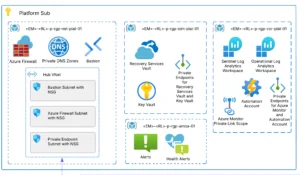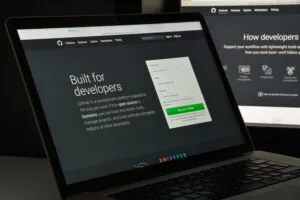Microsoft affirms its commitment to the Java ecosystem by offering open-source distribution of Java with the Microsoft Build of OpenJDK™. It’s a no-cost, Long-Term Support (LTS) distribution of OpenJDK currently available for preview.
The preview build includes the binaries for Java 11 available on x64 server and desktop environments on Windows, macOS, and Linux. An early-access release for Java 16 is available for Windows on ARM. Microsoft is currently collecting feedback on the packing and installer of the build on various platforms from the users of the preview build and aims to release the GA build by the end of 2021.
Why Microsoft is Offering JDK Distribution?
Microsoft has been deeply involved in the Java ecosystem by offering Java tools for Visual Studio Code, supporting Java on Azure, running several internal platforms, and some Azure infrastructure services on Java Virtual Machine (JVM). Microsoft runs more than 500,000 JVMs internally, excluding all Azure services and customer workloads. Azure has experienced significant growth in Java workloads through Azure Spring Cloud, Azure App Service, Azure Functions, and Azure Kubernetes Service. LinkedIn, Minecraft, and Yammer are examples of major internal platforms run on Java.
Below are few critical triggers outside the rise of internal JVM workloads for Microsoft to jump into OpenJDK distribution:
- Cost reduction: Java support costs on Azure cloud can be reduced by avoiding commercial licenses for Java. It helps to reduce the overall Azure subscription costs by removing the cost passed to other vendors for JDK licenses.
- Security & performance improvement: The build may contain backported fixes and enhancements for security and performance, which may not have formally backported upstream.
- Support Java devs: Part of Microsoft’s dedication to better support Java developers on Azure.
- Become a leader in providing toolkits for the open-source community: Microsoft has been a sponsor and contributor to the Java open-source community through AdoptOpenJDK projects since 2018, and has contributed to OpenJDK by providing more than 50 patches for OpenJDK in the last 18 months, which includes resolutions for issues in macOS packaging, build, infrastructure, and garbage collection.
Benefits to Java Developers on Azure
- Multi-OS Support: Windows, macOS, and Linux
- Multi-Environment Support: cloud, local data centers, and user development environments
- Free to Use: the Microsoft Build of OpenJDK is at no cost to use.
- Backed by Microsoft: This is backed by the promise of Microsoft. Many backported fixes and enhancements are recommended by Microsoft that may not be available in upstream OpenJDK implementations.
- Ease of Migration: Smooth and transparent transition for existing workloads.
Limitations
- Docker image is not available at this point
- Medium-term support releases of OpenJDK are not supported
- No API available to access the binary distribution
- No ARM-based macOS binary at this point
How to Install on Windows
The packages and installer for Microsoft’s OpenJDK preview build are available at https://www.microsoft.com/openjdk#11. Azure customers can try out the preview using Azure Cloud Shell too.
Download the package on the platform of your choice and confirm the Java version. For Windows, the installer takes care of the default location and setting PATH and JAVA_HOME environment variables.
Picture 1: Microsoft Build of OpenJDK on Windows 10
A build of Open JDK 11 is already available in the Azure Cloud Shell; developers can use it with Shell.
Picture 2: Microsoft Build of OpenJDK on Azure Cloud Shell
We expect more enterprise organizations modernizing Java on Azure with increased support and options from Microsoft. This is welcome news to organizations with a large investment in Java and has experienced a large increase in the cost of legacy Java workloads. Need a partner to accelerate your modernization journey? Reach out to AIS today.








